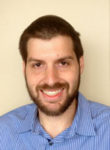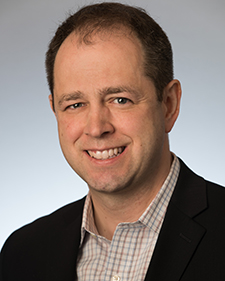By Jacob Kamaras


LA JOLLA, California — As a wave of antisemitism on their campuses persists during the Israel-Hamas war, Dan Elbaum’s message to today’s Jewish college students is that they should not lose hope.
In mid-May, approximately 500 people gathered at UCSD for a rally in solidarity with Israel, in a demonstration organized by the Jewish Agency Israel Fellow on that campus, with the help of Hillel and the Israeli-American Council. Such initiatives show Jewish and pro-Israel students that “you are not alone and that there are resources at Hillel, Chabad, your local Jewish federations, and other good people who have your back,” says Elbaum, who is head of North America at The Jewish Agency for Israel and the president and CEO of Jewish Agency International Development.
Given the surge in anti-Israel and antisemitic incidents with the growth of the BDS movement and the ongoing war, The Jewish Agency for Israel’s Campus Israel Fellows are supporting Jewish college students by maintaining an authentic and engaging Israeli presence on campuses. As one of the priority initiatives of The Jewish Agency, the program brings dozens of Israeli young adults to college and university campuses around the world — to further efforts of campuses to be safe spaces for education, tolerance, and diversity.
In the following interview with San Diego Jewish World, Elbaum provides context for the discourse surrounding Israel on California campuses, describes what makes the Israel Fellows unique, and weighs in on the UCSD chancellor’s immediate response to the October 7 Hamas attacks.
Q: A notable number of California’s campuses, especially in the UC public university system, have historically been hotbeds for anti-Israel activity. In fact, Students for Justice in Palestine was founded at UC Berkeley. Can you share any insights into why you think such activity is so prevalent in this state?
A: “California and the UC system have long been bastions of progressive thought and values. There are many positive things attached to this.
“That being said, one negative trend has been the simplistic trend of believing that nearly every political situation must be viewed in the context of the powerful versus the powerless. Part of this way of thinking is that the powerful are always to blame for any conflict, and that those without power are always blameless.
“Now juxtapose that school of thinking with what is essentially Israel’s raison d’etre — we must never be powerless again — and the tension is natural and inherent.”
Q: What is unique about the work of the Israel Fellows on campuses in California and across the country?
A: “I make no claims at impartiality, but I strongly believe that there is no program in America that is doing more for Jewish students than The Jewish Agency’s Israel Fellow Program. The reason for that is not complicated. We recruit really extraordinary young Israelis after they have completed their studies at Israeli colleges and universities to be living role models, friends, and mentors to Jewish American college students. They also present an authentic picture of what Israel is like and how that reality runs counter to the images that so many students see on social media.
“I have said this on more than one occasion, but I really believe that it is one of the truest things about helping people gain a better understanding of Israel post-October 7. Israel of course needs experts who can speak knowledgeably about it. But far more importantly, it needs character witnesses. Character witnesses do not need to know every single fact about Israel’s history — they simply need to be able to speak movingly about the fundamental goodness of the Israeli people. Our Israel Fellows are creating new character witnesses for Israel every day.”
Q: What’s your assessment of the language used by UCSD Chancellor Pradeep K. Khosla in statements made on October 9 and 10, in the days immediately following the Hamas attacks? (Read the statements here.)
“I would give it an A-minus and possibly an A if graded on a curve compared with the statements from other university officials across the U.S. The call for condemnation and use of the word ‘terrorism’ are important and should not be taken for granted. Furthermore, Chancellor Khosla specifically named Hamas and was clear and unambiguous where the fault lies in the attack. The expression of solidarity with Jewish students was also important and well-stated.
“Of course, if I were to nitpick, it is notable that even before Israel had begun to contemplate its response, there was already an expression of support for ‘all’ innocent victims. But, all things considered, what university officials say matters, and much of this statement could be used as a textbook response of the best way to respond in this type of situation.”
Q: When do protests such as the tent encampments cross the line from fair criticism or debate, to harassment and intimidation that should be contained by campus administrations?
A: “This is not a complicated question. You have every right to say and believe anything that you wish, as long as you are not threatening others. You do not have the right to bar Jewish students from going to class; you do not have the right to break into university buildings, you don’t have the right to damage things that do not belong to you, and you do not have the right to call for genocide.
“I do think that it is striking that universities have not seemed to care that much about free speech when the rhetoric was directed against other minorities. Many of the same institutions that were quick to expel students, correctly in my opinion, when the speech was directed against African-American or LGBTQ+ students, suddenly find the issue somehow more complicated when Jews are the victims. In that situation, it is not only important that Jews ask why that is, but that we encourage our allies to do the same.”
Q: Some universities (such as Yeshiva University and Brandeis University) have been recruiting transfer students based on the value proposition of offering a safe haven for Jewish students. What do you think is the best course for Jewish students who feel threatened right now — staying put and trying to improve the situation on their current campuses, or seeking more security and stability elsewhere?
A: “Every student, and their family, of course has the right to make their own choices. I also have tremendous admiration for and gratitude to the presidents of Brandeis and Yeshiva for their outreach to Jewish students. That being said, I strongly believe that we as a community need to fight to preserve our place on every single college campus.
“I would tell Jewish American college students three things. First, be proud of who you are and don’t let anyone else define you. You have worked hard to get to where you are and do not allow others to derail you and all that you are doing. Second, know that you are not alone and that there are resources at Hillel, Chabad, your local Jewish federations, and other good people who have your back. Third, you will always remember this time in your life and look back on it in a way that is different than maybe any other time after. Ask yourself how you want to remember what you did during this time and do your best to act accordingly.
“Also, I think that it’s important for students to remember that the overwhelming majority of their fellow students are not antisemites, nor are many of them involved in this movement. There is a great deal of reachable people, and we must never forget that.”
*
Jacob Kamaras is a former publisher and editor of San Diego Jewish World. He is now an executive with J Cubed Communications.